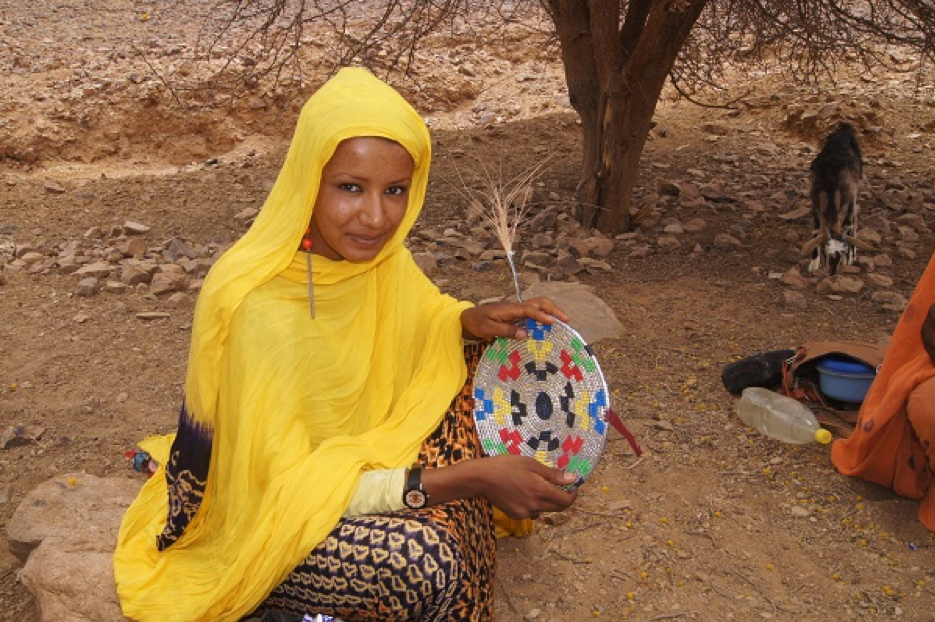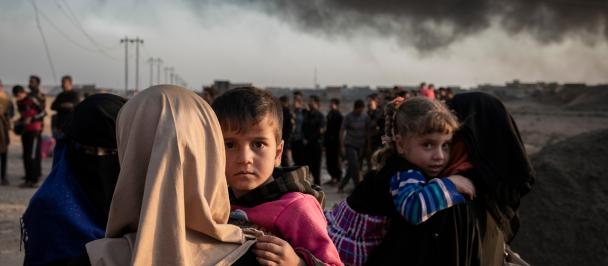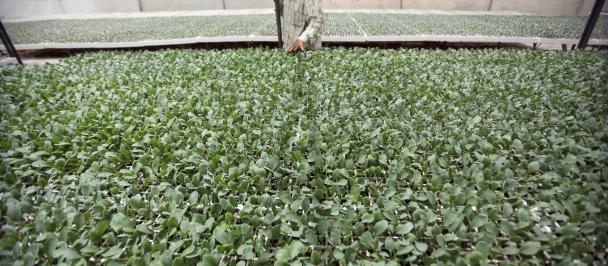A local community representative affiliated with Algeria’s Cultural Parks. Photo: UNDP
The 14th Conference of the Parties (COP14) to the UN Convention on Biological Diversity (CBD) is currently convening in Egypt 13–29 November 2018. More than 190 countries are reviewing the rapid decline in the planet’s ecosystems and ways to accelerate achievement of global targets under the CBD as well as the Sustainable Development Goals (SDGs).
Key to this are the findings of the Intergovernmental Science-Policy Platform on Biodiversity and Ecosystem Services (IPBES), a global effort by governments, academia, and civil society to assess and promote knowledge of Earth’s biodiversity and its contribution to society.
A special focus of IPBES is the notion of nature’s contributions to people (NCP), recognizing the key role of culture in mediating the link between people and nature, including the role of indigenous and local knowledge. Beyond global technocratic approaches, the focus here is on bottom-up locally contextualized solutions.
One example is in the Arab region, where the Amazigh, also known as the Berber people, are an indigenous group in North Africa who have faced many challenges of inclusion and equity. Among the various features that define the Amazigh, is their relation to the environment with many communities retaining a traditional, nomadic lifestyle and close connection to land and natural resources. An affiliated group is the Touareg, a nomadic group thought by some to be a founding sub-group of the Amazigh, present among other places in southern Algeria.
Through its project on the Conservation of Globally Significant Biodiversity and Sustainable Use of Ecosystem Services in Algeria’s Cultural Parks, UNDP develops capacities of the Ministry of Culture and local communities to achieve a balance between sustainable use of ecosystems and goals of community resilience. With a $5.3 million grant from the Global Environment Facility (GEF), the project is helping integrate biodiversity action into the Cultural Park system in Algeria, to improve the balance between conserving globally significant ecosystems and resilience of traditional knowledge.
The project supports activities in five cultural parks (Ahaggar Park, Tassili n’Ajjer, Touat Gourara Tidikelt, Saharan Atlas and Tindouf) accounting for 44% of the Algerian territory and high levels of ecological and cultural importance. A particular focus is placed on Tassili N’Ajjer and Ahaggar cultural parks, the former a World Heritage Site and Biosphere Reserve hosting ancient cave paintings dating back 12,000 years. Both host globally critical diversity of species and central Saharan ecosystems, and together form the largest contiguous protected area in Africa, and second largest in the world.
Through the partnership with the Ministry of Culture, UNDP has helped establish systems, structures and policies for the management of globally critical natural assets enshrined in these landscapes. These new systems and policies help empower traditional resource use and conservation practices of local communities, establish an ecosystems-approach to livelihoods benefitting local communities, and consolidate the experience at Tassili N’Ajjer and Ahaggar sites to serve a model for other newly designated cultural parks in Algeria, and hopefully, beyond.
Through a participatory process, collaborative management initiatives are leading to new forms of devolution which ensure conservation of ecosystems while safeguarding rights and livelihoods of traditional resource users. Indigenous community users are empowered to identify and experiment with alternative solutions, share traditional knowledge on adaptive management of ecosystems, and take a lead role in biodiversity monitoring systems.
COP14 and the affiliated IPBES process have placed renewed emphasis on nature’s contribution to people. As the first ever Biodiversity COP in the Middle East and North Africa, this serves as an important platform for expanding initiatives that engage the pluralism of cultures and diversity of ecosystems found in the region. As countries move forward to scale up results under the Biodiversity Convention and the SDGs, UNDP is scaling up its cooperation in the region, with a key focus on bottom-up solutions that benefit both people and planet.

 Locations
Locations



